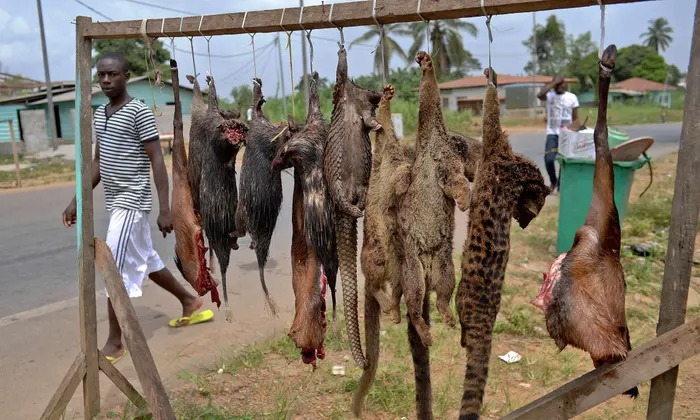Lassa fever: Stay away from rats and other bush meats – Dr Micheal Owusu warns public

File photo
A Clinical Microbiologist and lecturer at the Department of Medical Diagnostics at the Kumasi Center for Collaborative Research (KCCR), in the Kwame Nkrumah University of Science and Technology (KNUST) Dr Micheal Owusu has warned the general public to stay away from rats and other bush meats after Lassa fever scare.
The Senior Lecturer has, therefore, cautioned the public to avoid contacting blood and body fluids (urine, saliva, breast milk, semen, faeces, vomit and sweat) of people who show symptoms of the disease.

His warning follows a report that Ghana has recorded two cases of Lassa Fever with one dying in the process.
Speaking on the Kumasi based OTEC 102.9 FM’s morning show Nyansapo, on Monday February 27,2022,Dr Owusu called on the public to be cautious and revive all known preventive measures to avert any possible spread of the disease in Ghana.
The Ghana Health Service on Friday issued a public statement announcing two cases of the Lassa Fever.
The statement signed by Director General of GHS, Dr Patrick Kuma Aboagye said the disease was comfirmed at the Noguchi Memorial Institute for Medical Research on 24th February 2023.
Meanwhile Dr Michael Owusu said Ghana recorded its first case of Lassa Fever in 2011 adding that, the disease is endemic in Liberia, Mali, Nigeria, Ghana and some west African countries.
Cause and Symptoms
Dr Micheal Owusu noted that Lassa fever is caused by the Lassa virus and the incubation period is 2-21 days.
“The virus is transmitted to humans through contact with food or household items contaminated with rodents like rats, grass- cutter mice urine or faeces”.
“Lassa virus may also be spread between humans through direct contact with the blood, urine, faeces, or other bodily fluids of a person infected with Lassa fever”. He told the Host, Captain Koda.
He explained that symptoms of Lassa fever may include fever and general weakness.
Source: Ghana/otecfmghana.com/Jacob Agyenim Boateng




